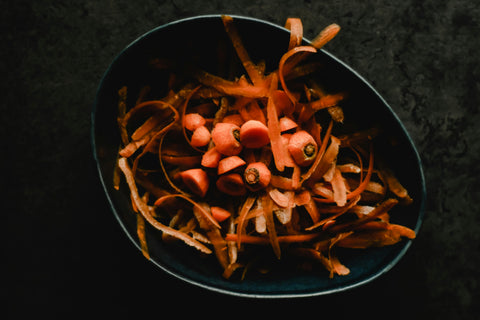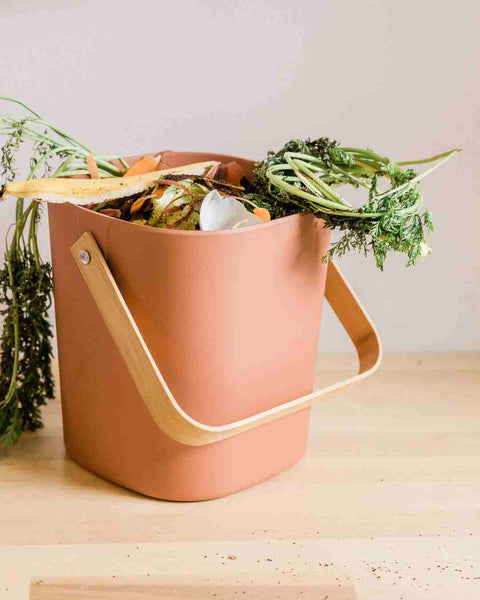Composting is a simple and ecological solution to reduce your waste while creating a natural and effective fertilizer for your garden. But do you really know what waste can go in a composter and how to optimize its decomposition? This complete guide explains everything you need to know for successful composting , from waste selection to tips for avoiding common mistakes.
Understanding composting and its benefits for the environment
What is composting and how does it work?
Composting is a natural process of decomposing organic matter through the action of microorganisms, earthworms and other decomposers. By mixing dry materials rich in carbon and wet materials rich in nitrogen, you get a perfect fertile soil for your plants.
The main steps:
- Transformation of food and plant waste into natural fertilizer .
- Production of compost rich in nutrients for the soil.
- Reduction of household waste and participation in zero waste .
Why compost your waste and what are the benefits?
Composting is more than just waste management. Here are the main benefits:
- Significant reduction in household waste .
- Production of a free and ecological natural fertilizer .
- Contribution to environmental protection by reducing methane emissions from landfills.
- Participation in a circular economy by recovering organic waste.
What waste can be composted and how to choose it?
Green materials: rich in nitrogen for active compost
Green waste , rich in nitrogen, is essential to stimulate decomposition. Here are some examples:
- Fruit and vegetable peelings
- Freshly mown grass and vegetable tops
- Weeds without seeds
- Food waste such as coffee grounds and tea bags
These wet materials promote the growth of microorganisms responsible for decomposition.
Brown materials: an essential source of carbon
Carbonaceous materials, dry and rich in fiber, balance the compost and avoid bad odors. Some examples:
- Dead leaves
- Wood chips and sawdust
- Crushed branches
- Unprinted cardboard and newsprint
The balanced mix of green and brown materials guarantees a rich and homogeneous compost.
What waste should be composted with care?
Some waste is compostable, but with moderation or precaution:
- Citrus fruits : Their acidity can slow down decomposition.
- Bread : In small quantities to avoid fermentation.
- Eggshells : They are compostable, but it is best to crush them first.
Use these wastes carefully to avoid attracting pests or upsetting the compost.
Can all waste be put in a composter?
Ash in the composter: a good or bad choice?
Wood ashes can enrich your compost with nutrients. However, use them in small quantities so as not to unbalance the pH of the compost. You can also compost the activated carbon from the water jug when it is no longer effective.
Can you compost dog poop and other excrement?
Excrement , such as dog poop, is not recommended for use in a home composter. It can contain pathogens that are dangerous to health and can pollute the compost.
Is it possible to compost bread or food scraps?
Food scraps , such as bread or pasta, should be added sparingly to avoid fermentation and the appearance of pests . Use collective composters for this waste.
Meat: to be avoided in a domestic composter
Meat and fish scraps attract pests and are difficult to decompose. Reserve them for industrial composting .
Waste to avoid for quality compost
The impact of banned waste on compost
Some waste, such as plastic or chemicals, can:
- Cause bad odors .
- Contaminate compost with pathogens .
- Make the compost unusable.
Avoid hazardous waste to ensure quality compost.
Embracing composting for a sustainable future
Composting is much more than a waste recycling technique: it is an ecological commitment. Whether through domestic or collective composting , you contribute to a more sustainable world and participate in the fight against pollution.
Conclusion
Composting is a simple, ecological and economical solution to manage your waste while improving the fertility of your soil. By following the right steps and avoiding common mistakes, you can transform your kitchen and garden waste into a high-quality natural fertilizer .
There are many ways to reduce your daily waste by consuming more naturally and responsibly, such as making your own inexpensive household products with natural ingredients.
FAQ
1. What waste should never be put in a composter?
Plastic waste, chemicals, diseased plants and meat scraps.
2. Can citrus fruits be composted?
Yes, but in small quantities to avoid acidification of the compost.
3. How do I balance my compost?
Mix equal parts green materials (rich in nitrogen) and brown materials (rich in carbon).
4. Can printed paper be composted?
No, prefer unprinted paper to avoid toxic inks.
5. How often should I stir my compost?
Stir the compost every 2 to 3 weeks to promote even decomposition.
6. I don't have an outdoor space, can I compost indoors?
Yes, there are small apartment composters , odorless and insect-free, perfect for the kitchen.



